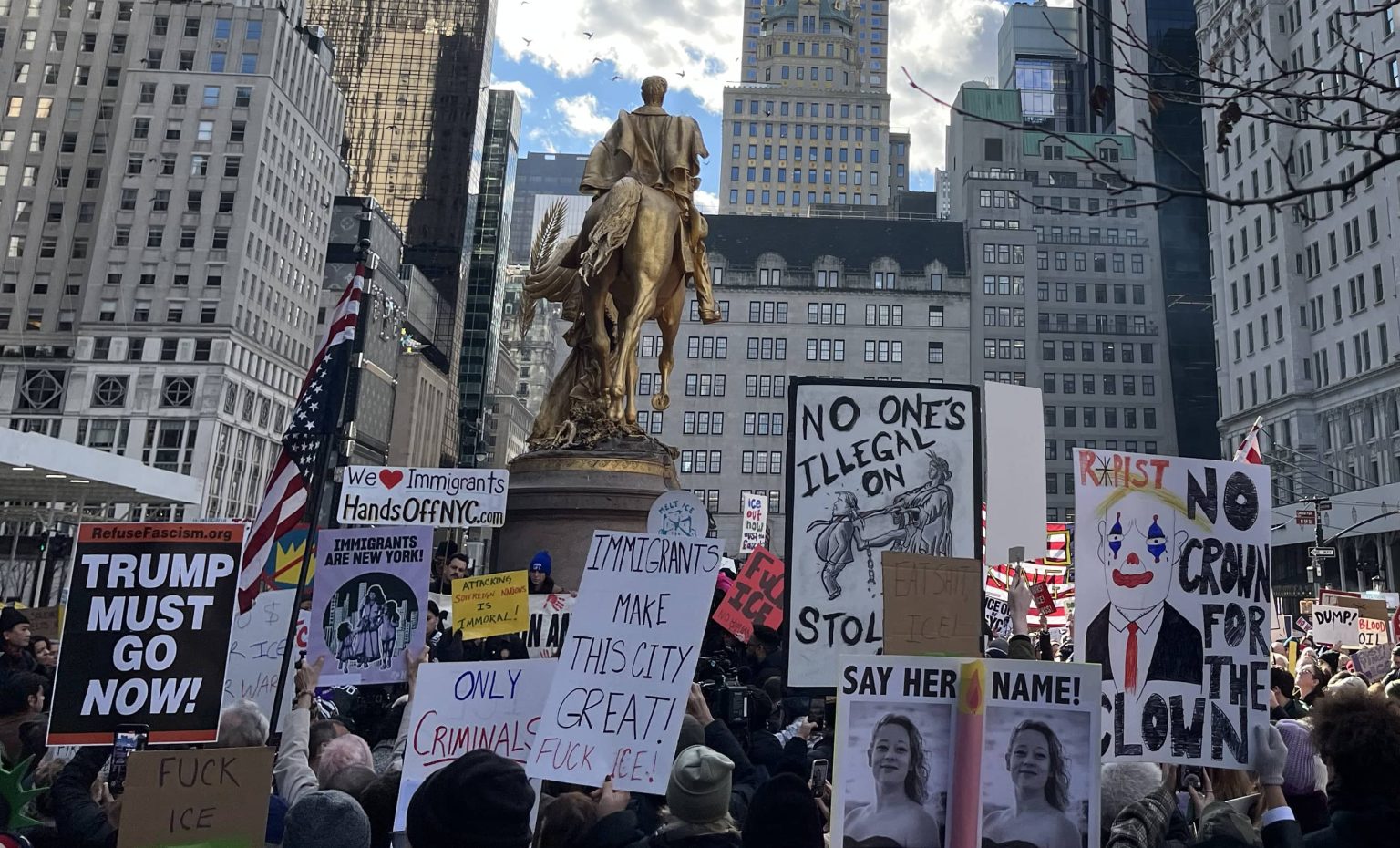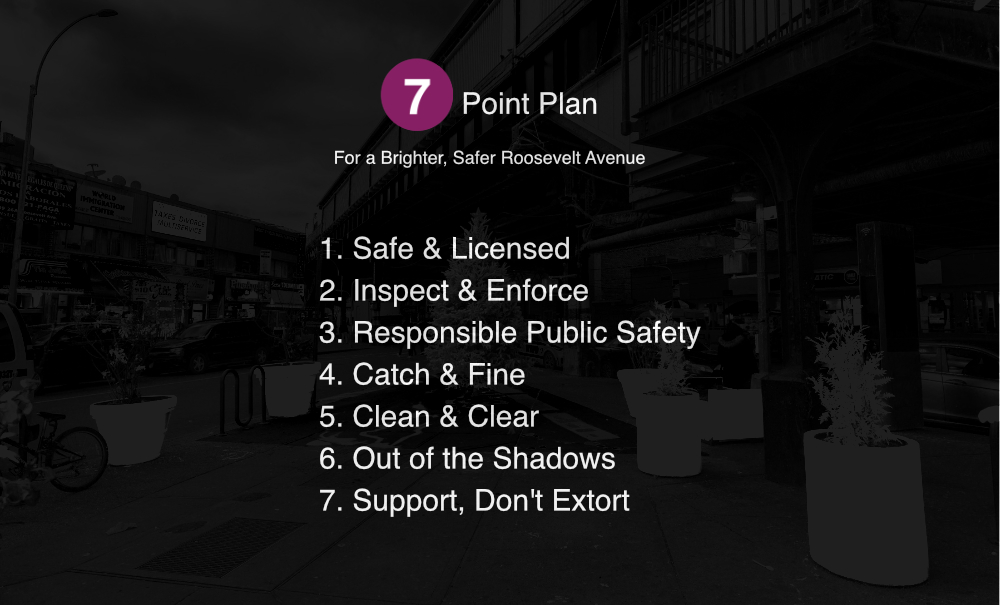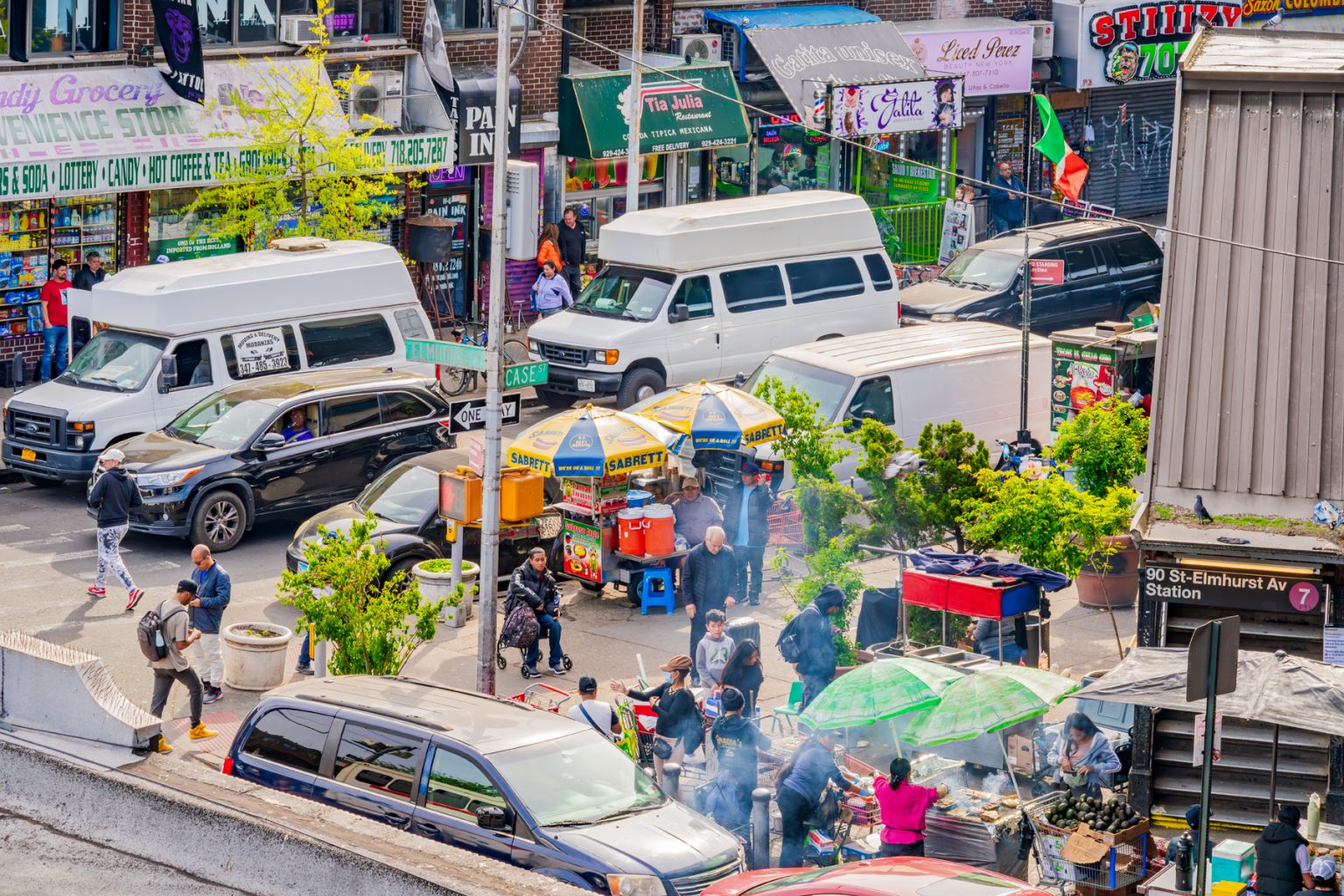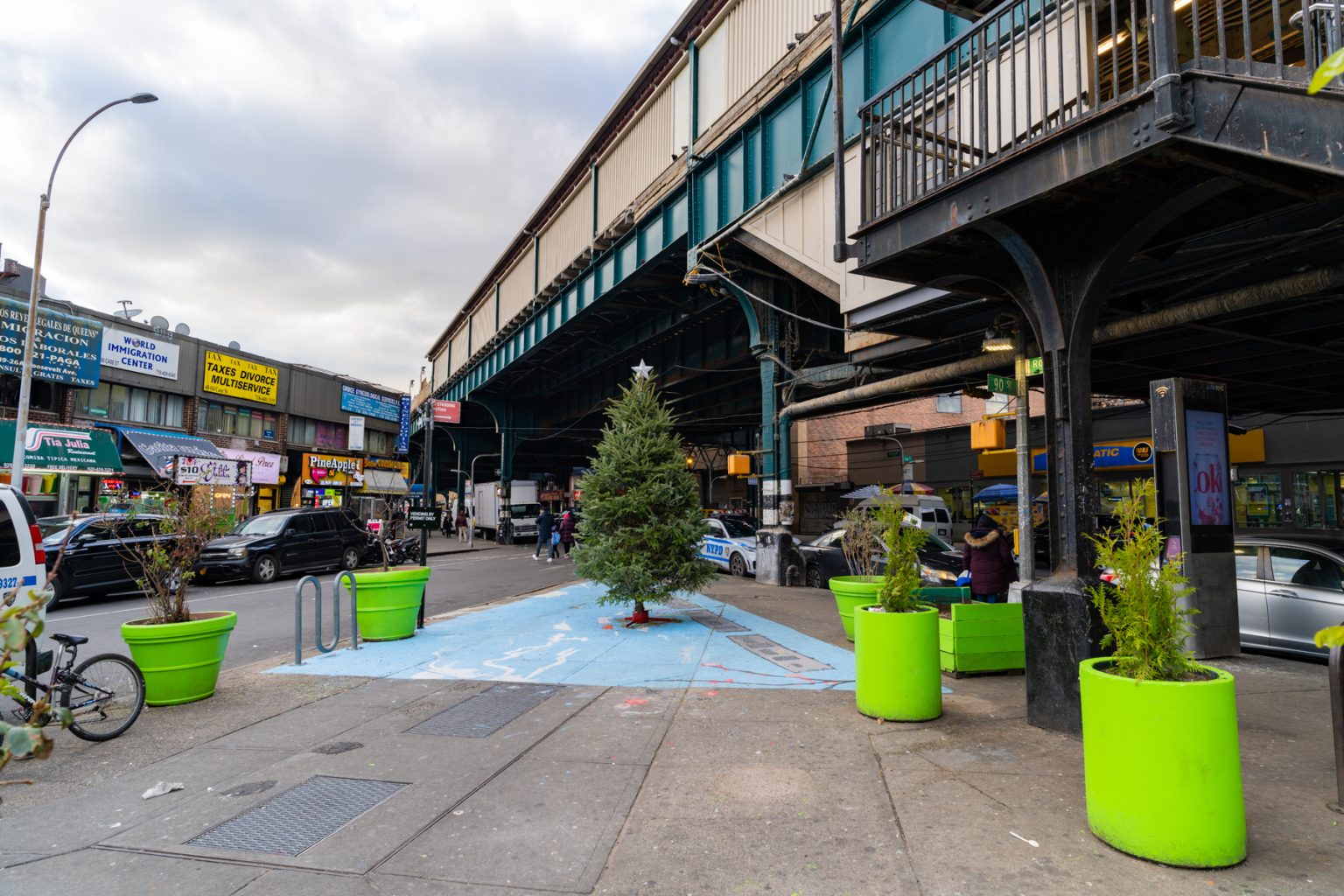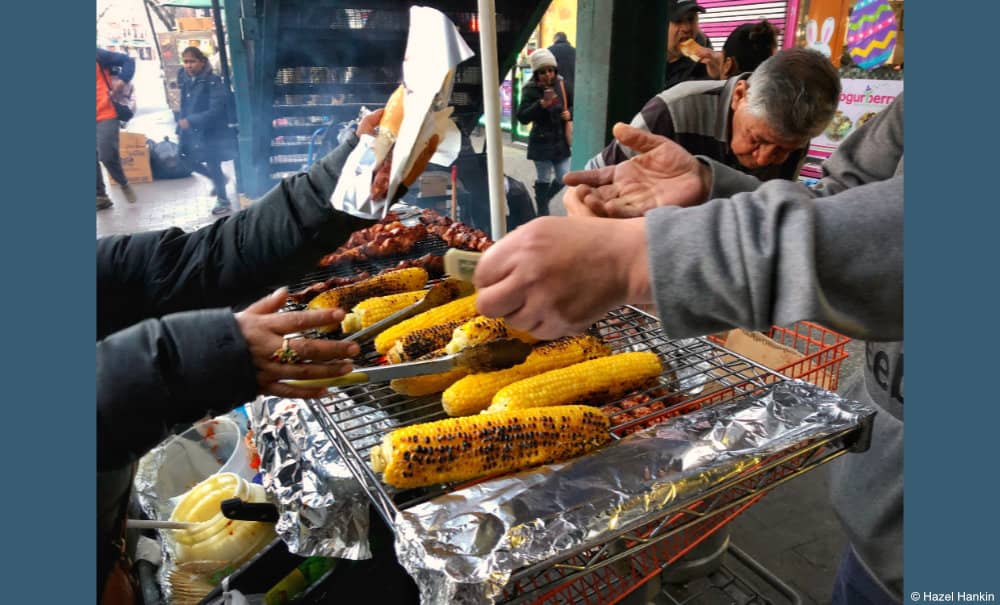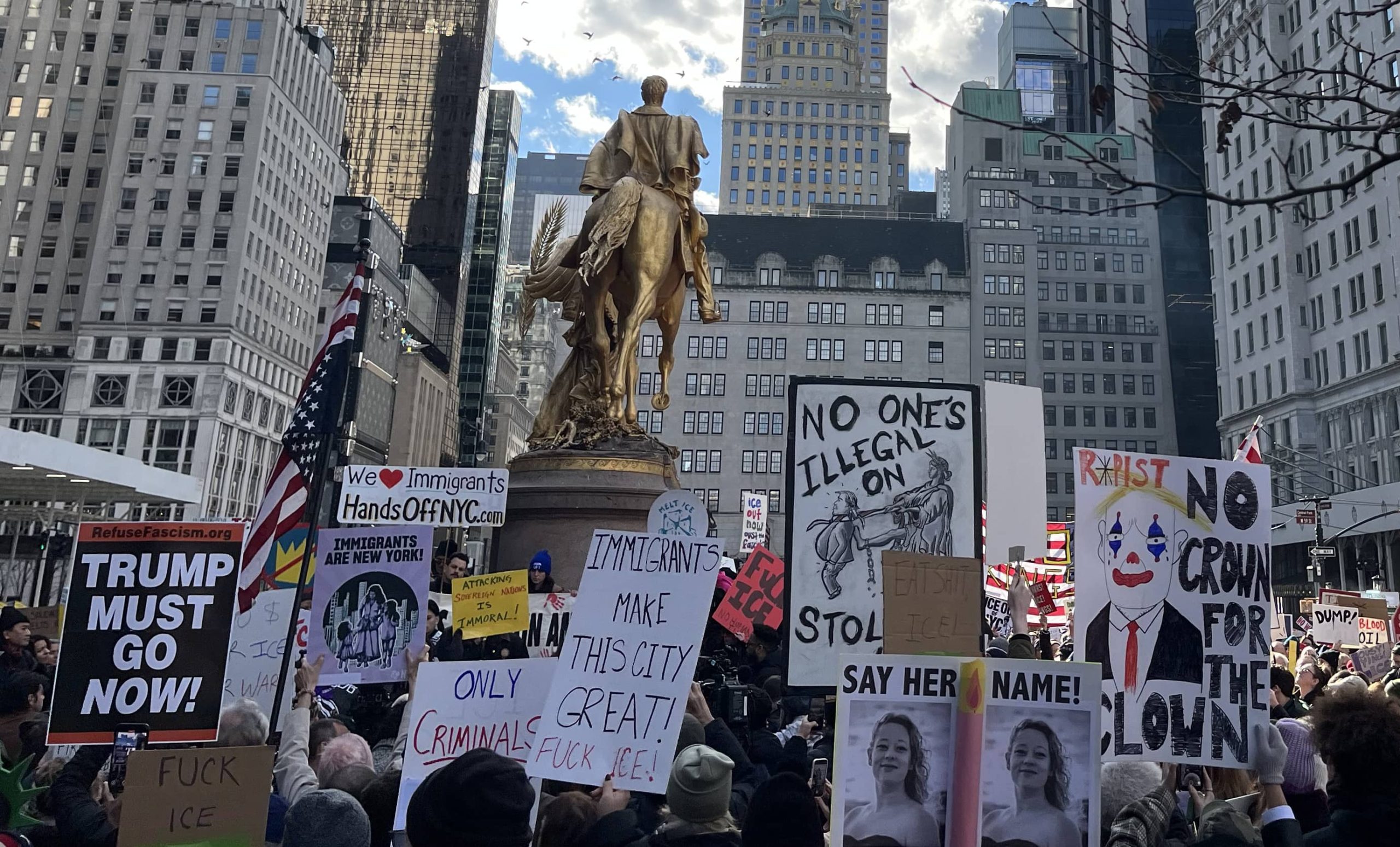
Dear friends,
Yesterday, New York City joined protests around the country, standing with striking Minnesotans who have risen in the cold as a powerful anti-ICE voice. They represent a people’s resistance against the always escalating, harmful, militarized tactics of Homeland Security. The entire nation watched a federal agent shoot and kill Renee Good—a poet, mother, and citizen who refused to ignore the inhumane federal deportation operations in her Minneapolis neighborhood. The president, and others in the administration and blamestream media, peddled the lie that Good was a domestic terrorist who was the cause of her own death. The person who clearly killed Renee Good was not a newly hired agent who lacked training: Jonathan Ross served more than 10 years in ICE’s elite Special Response Team.
While many agree that ICE (established less than 25 years ago) should be abolished, most Democrat leaders appear to be following the guidance of a “Don’t Say Abolish ICE” memo. Written by a former Customs and Border Protection official who is now a corporate consultant for the defense and surveillance sector, the memo advises reforming and retraining ICE. Fortunately, our new Mayor, Zohran Mamdani, remains strong in his stance. He stated on ABC’s, The View, “I am in support of abolishing ICE…We’re seeing a government agency that is supposed to be enforcing some kind of immigration law, but instead what it’s doing is terrorizing people”.
Today’s newsletter reports on NYC’s now ex-mayor’s veto, just as he left office, of City Council legislation promoting immigrant and economic justice. We then offer an update on battles over Temporary Protective Status (TPS), including the good news of a recent court decision that reverses the Trump regime’s cancellation of protections for Nepali TPS holders.
Newsletter highlights:
- Eric Adams vetoes immigrant justice in cruel exit act
- Temporary Protective Status (TPS) under attack: Update
1. Eric Adams’ Last Betrayal
“It is unsurprising that this mayor is ending his term by demonstrating, once again, that protecting and supporting working-class New Yorkers is not his priority. His vetoes put special interests above greater affordability and opportunity for hardworking New Yorkers, and public safety.” — Outgoing City Council Speaker Adrienne Adams
On his last day in office, Eric Adams—a mayor we have long criticized for scapegoating immigrants—vetoed three key pro-immigrant legislative packages that had been passed by large majorities in the City Council. The bills were among a total of 19 measures Adams vetoed, as a final New Year’s Eve “drop dead” to the lawmakers and the people of New York.
One of the vetoed packages aims to regulate and reform street vending. Among its provisions is the long-delayed raising of the cap on the number of vending licenses. Local Councilmember Shekar Krishnan had praised passage of the package as “a historic day for workers.” The legislation became urgent after Mayor Adams, who had promised to raise the cap and dial down punitive enforcement against vendors, made a quick 180-degree turn, joining with right-wing forces in a campaign to uproot and intimidate vendors in Corona Plaza, Roosevelt Avenue, and other parts of the city.
Another veto casualty was Tiffany Cabán’s Safer Sanctuary Act. This would outlaw the establishment of ICE offices on Rikers Island, something that has been contentious throughout Adams’ tenure. That act would also close a loophole in the city’s sanctuary laws, making it clear that the restrictions they place on cooperation with federal authorities would apply to all immigration enforcement agencies, not just ICE.
Adams’ third anti-immigrant veto gave a thumbs down to badly-needed legislation defending deliveristas from a wave of arbitrary “deactivations”—firings—initiated by delivery app companies. The Council measure requires that delivery workers be given a reason for deactivation, the right to appeal, and a 120-day notice before permanent deactivation.
According to city law, once the vetoes were formally registered, which happened on January 7, the Council has 30 days to override them, a process which requires a 2/3rds majority vote. The clock is ticking, with many other priorities competing for legislators’ attention in the new year.
New Council Speaker Julie Menin can strongly influence the fate of the vetoed bills, since she largely controls legislative scheduling and agendas. In practice, she seems unlikely to run out the clock on these three measures, which were all passed with “veto-proof “ majorities. For instance, the measure lifting the vendor license cap was passed by a margin of 39-9, as was the Safer Sanctuary Act. The bill defending deliveristas passed 40-8. Menin is a supporter of sanctuary laws, and was actually a co-sponsor of the street vendor bill.
However, Menin has refused to commit to overriding all of Mayor Adams’ vetoes, saying only that “the Council will consider next steps on these bills.”
NYC lawmakers have been given further impetus to act by ICE’s arrest of one of their own staffers, Venezuelan immigrant Andres Rubio Bohorquez, at a routine asylum interview. Menin and many other Council members have expressed concern and anger at ICE over the data analyst’s detention. This attack on one of their own employees is likely to concentrate the Council’s attention, bringing home how much is at stake for immigrants in their deliberations.
WHAT CAN WE DO?
- Contact City Council speaker Julie Menin to voice your support for passage of the three vetoed bills. Email: District5@council.nyc.gov | Phone: (212) 860-1950
- Support the Street Vendor Project and Los Deliveristas Unidos.
2. The Ongoing Weaponization Of TPS
“The harm already caused by the administration’s cruel, lawless actions cannot be undone, but we are hopeful that, with this ruling, the new year will bring a measure of justice and peace to the TPS holder community.” —Jessica Bansal, attorney at the National Day Laborer Organizing Network (NDLON)
The new year started positively for Adhikaar, the Queens-based group that serves and supports the Nepali-speaking community in NYC. They shared welcome news that a Northern California District Court judge ruled that the Trump administration had illegally ended TPS for Honduras, Nepal, and Nicaragua. Adhikaar applauded the work of the National Day Laborer Organizing Network (NDLON) and other members of the National TPS Alliance who argued the legal case, which affects around 60,000 people nationwide, including thousands of Queens residents.
Ama Frimpong, the Legal Director of CASA, stated that the ruling clearly showed TPS cannot be terminated based on racialized political narratives. Frimpong continued, “This decision is not only a victory for TPS holders from Honduras, Nicaragua, and Nepal, but an encouraging signal for TPS holders from Venezuela, Cameroon, Afghanistan, and beyond who are fighting to protect their families and their futures.”
Two days later, after US forces captured and removed the president of Venezuela, Homeland Security Secretary Kristy Noem announced that Venezuelans in the US under TPS had the opportunity to apply for refugee status. There was no hint as to how more than 600,000 people could do that when the US government has limited the total number of refugees per year to just 7,500. A few hours after her announcement, the Homeland Security eX-twitter account denied that Noem had ever said that, and instead reaffirmed that she had ended TPS for more than 500,000 people. The post suggested that, “now they can go home to a country that they love.” Even those Venezuelans who are happy about Maduro’s removal say returning is an extreme risk.
Minnesota has the largest Somali population in the US. Just days after a weekend of national protest in the wake of the ICE murder of Renee Nicole Good in Minneapolis, and Homeland Security’s brutal tactics in the Twin Cities, Trump announced the termination of TPS for Somalis. Ignoring the economic destabilization it will bring, he declared legal protections for Somali nationals enrolled in the TPS program will be ended in two months, on March 17. He claimed that country conditions had improved, an opinion easily contradicted by the work of Freedom House, which has monitored the state of global freedom for 85 years: currently, they give Somalia a Global Freedom Score of 8 out of 100; the US score is 84.
The day after Trump’s Somalia announcement, the US Ninth Circuit Court of Appeals heard oral arguments for the second of the National TPS Alliance lawsuits, defending Haitians and Venezuelans. A Federal Judge has indicated she will not rule on the Haitian TPS case until February 6, which is just one day before that protection is set to expire. Just as the year began, and our article started with hope from NDLON, so these recent fraught weeks have ended with Ahilan Arulanantham, the Co-Director of UCLA’s Center for Immigration Law & Policy (CILP) stating, “We hope the court will insist the administration comply with the law as Congress intended it to by engaging in an objective assessment of the country conditions in Venezuela.”
We wonder, is “hope” really enough?
WHAT CAN WE DO?
- If you are able, please donate to support the work of the National TPS Alliance.
- Download and complete the VPSA (Values, Problem, Solution, Action) Worksheet and see what effective, values-based messaging you can develop for immigrant justice issues.
In solidarity and with collective care,
Jackson Heights Immigrant Solidarity Network (JHISN)
Follow @JHSolidarity on Facebook and Twitter and share this newsletter with friends, families, neighbors, networks, and colleagues so they can subscribe and receive news from JHISN.
